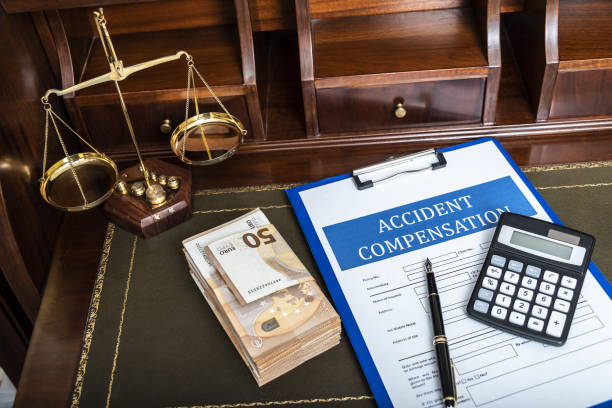What Does a Personal Injury Lawyer Do? Explained

Exploring the Role of a Personal Injury Lawyer
When someone suffers harm due to another party’s negligence or misconduct, navigating the legal system can feel overwhelming. A personal injury lawyer steps in as a skilled advocate, helping clients pursue justice and fair compensation. These professionals specialize in cases where individuals face physical, emotional, or financial losses caused by accidents or intentional acts. From investigating claims to negotiating settlements or representing clients in court, their expertise proves invaluable during tough times. For those curious about legal options after an injury, resources like Legal Case Review offer insights into how such cases unfold.
Personal injury lawyers serve as both legal guides and emotional supporters. They tackle the heavy lifting of case management, allowing clients to focus on healing. Whether it’s a car accident, a slip and fall, or a workplace injury, these attorneys assess the situation, gather evidence, and determine the best path forward. Their role extends beyond paperwork—they aim to level the playing field against insurance companies or opposing parties who might otherwise take advantage of an injured individual’s vulnerability.

Key Responsibilities of a Personal Injury Lawyer
A personal injury lawyer carries a wide range of duties to ensure their clients’ rights remain protected. Their work begins with a deep dive into the details of an injury case. Here’s a breakdown of their core responsibilities:
- Case Evaluation: They review the incident’s circumstances, pinpoint liability, and estimate potential compensation based on damages like medical bills or lost income.
- Evidence Collection: This involves securing police reports, medical records, and witness statements to build a solid foundation for the claim.
- Negotiation: They engage with insurance companies to push for settlements that reflect the true extent of their client’s losses.
- Court Representation: If talks fail, they file lawsuits, prepare legal documents, and argue the case before a judge or jury.
These tasks demand both legal knowledge and strategic thinking. By managing these elements, personal injury lawyers shield clients from the stress of legal battles while working tirelessly to secure a favorable outcome. Their ability to juggle multiple aspects of a case makes them essential allies in the pursuit of justice.
How a Personal Injury Lawyer Investigates Your Case?
The investigation process lies at the heart of a personal injury claim. A lawyer starts by piecing together the incident’s details. They collect critical documents like accident reports and medical records while reaching out to witnesses for firsthand accounts. This groundwork helps establish who bears responsibility for the harm caused.
Next, they analyze the evidence to gauge the case’s strength. For example, in a car crash, they might examine traffic camera footage or consult an accident reconstruction expert to clarify what happened. This step-by-step approach ensures no stone goes unturned, bolstering the claim’s credibility. External resources, such as the National Highway Traffic Safety Administration (NHTSA), often provide valuable data on accident trends that can support a case.
Finally, they take charge of discussions with insurance adjusters. Armed with facts and expert input, they negotiate to secure compensation that covers medical costs, lost wages, and other damages. This thorough method relieves clients of the burden of dealing with complex legal or insurance matters directly.
The Importance of Evidence in Personal Injury Cases
Evidence acts as the backbone of any personal injury case, proving both liability and the scope of harm suffered. Personal injury lawyers excel at identifying and gathering the most persuasive materials, such as medical bills, photos of injuries, or written witness testimonies. These elements paint a clear picture of the incident and its impact on the client’s life.
The lawyer’s knack for investigation shines here. They might visit the accident scene, interview bystanders, or hire specialists to recreate events. In a slip-and-fall case, for instance, they could document unsafe conditions like a wet floor or poor lighting to hold a property owner accountable. Strong evidence not only supports the claim but also counters any attempts by the opposing side to downplay the injury.
During negotiations or trials, how evidence gets presented matters just as much as what’s collected. A skilled lawyer weaves it into a compelling story that highlights the client’s struggles—whether it’s chronic pain or financial strain—making it harder for insurers or courts to dismiss the claim’s validity.
Negotiating Settlements: A Core Skill of Personal Injury Lawyers
Settling a case often proves faster and less stressful than going to trial, and personal injury lawyers shine in this arena. They begin by calculating a claim’s worth, factoring in tangible costs like hospital bills and intangibles like emotional distress. With this figure in mind, they draft a demand letter to kick off talks with the at-fault party or their insurer.
Negotiations require finesse. Insurance companies frequently push lowball offers, hoping clients will settle quickly. A seasoned lawyer spots these tactics and counters with evidence-backed arguments, refusing to let their client get shortchanged. If the offer falls short, they advise on whether litigation makes sense, always keeping the client’s best interests in focus.
The goal? A settlement that fully compensates for losses without dragging the process out unnecessarily. This balance of assertiveness and strategy showcases why hiring a personal injury lawyer can make all the difference in securing a fair deal.
Navigating Court Proceedings with a Personal Injury Lawyer
When settlement talks stall, court becomes the next step. Personal injury lawyers guide clients through this intimidating process with confidence. They handle everything from filing lawsuits to preparing exhibits, ensuring every detail aligns with legal standards. Their courtroom presence offers reassurance to clients facing an unfamiliar system.
In the trial, they present evidence and question witnesses to build a persuasive case. They also challenge the opposing side’s claims, poking holes in weak defenses. Whether addressing a judge or jury, they aim to convey the injury’s toll—both physical and financial—in a way that resonates. This advocacy ensures clients have a fighting chance at the compensation they deserve.

Benefits of Hiring a Personal Injury Lawyer
Hiring a personal injury lawyer provides several advantages:
- Legal Expertise: They understand the intricacies of personal injury law.
- Higher Compensation: Studies show that individuals with legal representation receive higher settlements.
- Stress Reduction: Lawyers handle all legal procedures, allowing clients to focus on recovery.
- Contingency Fee Basis: Most lawyers only get paid if the case is won, making legal help accessible.
- Court Representation: If necessary, they will represent clients in trials.
These benefits highlight the importance of legal assistance in achieving favorable outcomes for injury victims.
Common Types of Personal Injury Cases
Personal injury lawyers handle a wide range of cases, including:
- Car Accidents: Seeking compensation for injuries caused by negligent drivers.
- Slip and Fall Incidents: Holding property owners accountable for unsafe conditions.
- Medical Malpractice: Addressing negligence by healthcare professionals.
- Workplace Injuries: Assisting employees in obtaining fair compensation.
- Defective Products: Holding manufacturers accountable for harmful products.
Each type of case requires a specific legal strategy, making experienced representation esse
What to Expect in Your First Meeting with a Personal Injury Lawyer?
Your initial consultation sets the stage for your case. The lawyer will ask about the incident—how it happened, the injuries sustained, and any treatment received. Be ready to share documents like medical records or insurance letters. They’ll assess these to gauge your claim’s potential.
They’ll also explain the legal process, timelines, and their fees—often contingency-based, meaning no upfront cost. This meeting doubles as a chance to ask about their experience or strategy. It’s about building trust and ensuring you feel confident moving forward.
FAQs
1. What does a personal injury lawyer charge for their services?
Most work on a contingency fee basis, taking a percentage (typically 25-40%) of the settlement or award only if they win.
2. How long do I have to file a personal injury claim?
This depends on the state’s statute of limitations, usually 2-3 years from the injury date. Check local laws for specifics.
3. Can I handle a personal injury case without a lawyer?
Yes, but it’s risky. Lawyers bring expertise that boosts your odds of a fair payout.
4. What if the insurance company denies my claim?
A lawyer can appeal the denial, gather more evidence, or take the case to court if needed.
5. How do I choose the right personal injury lawyer?
Look for experience, a strong track record, and clear communication. Consultations help gauge compatibility.



